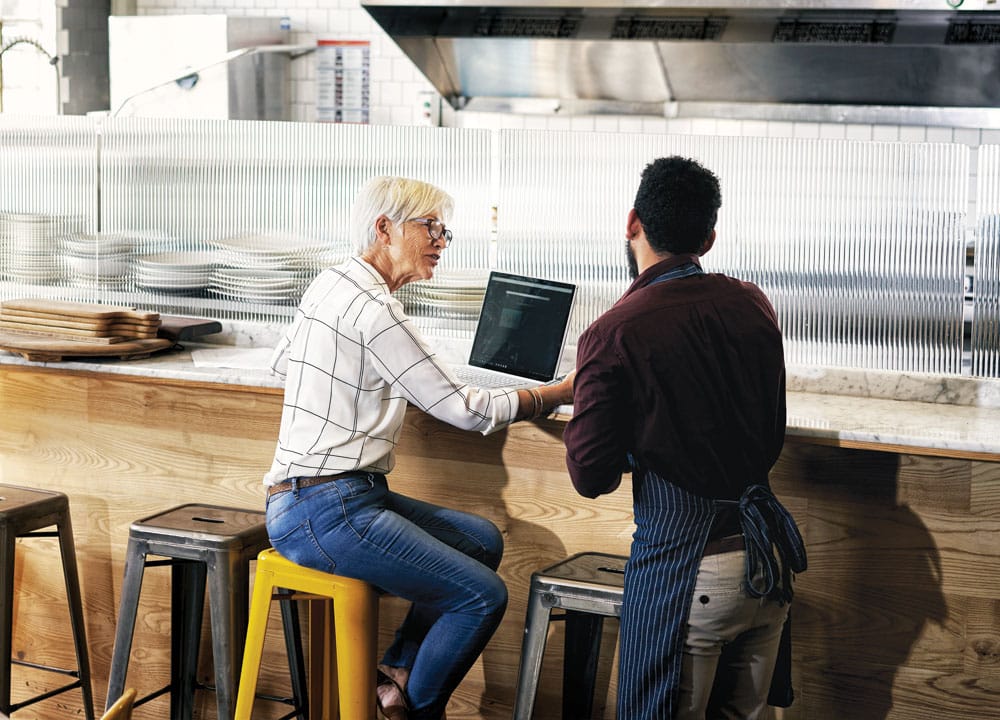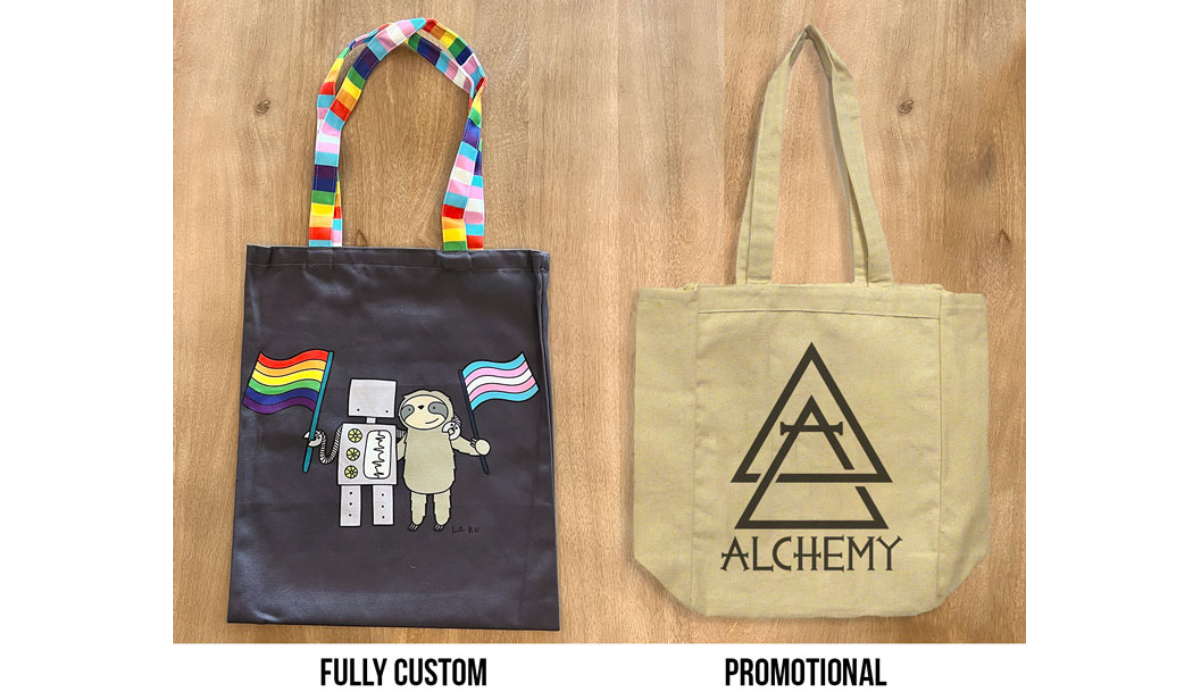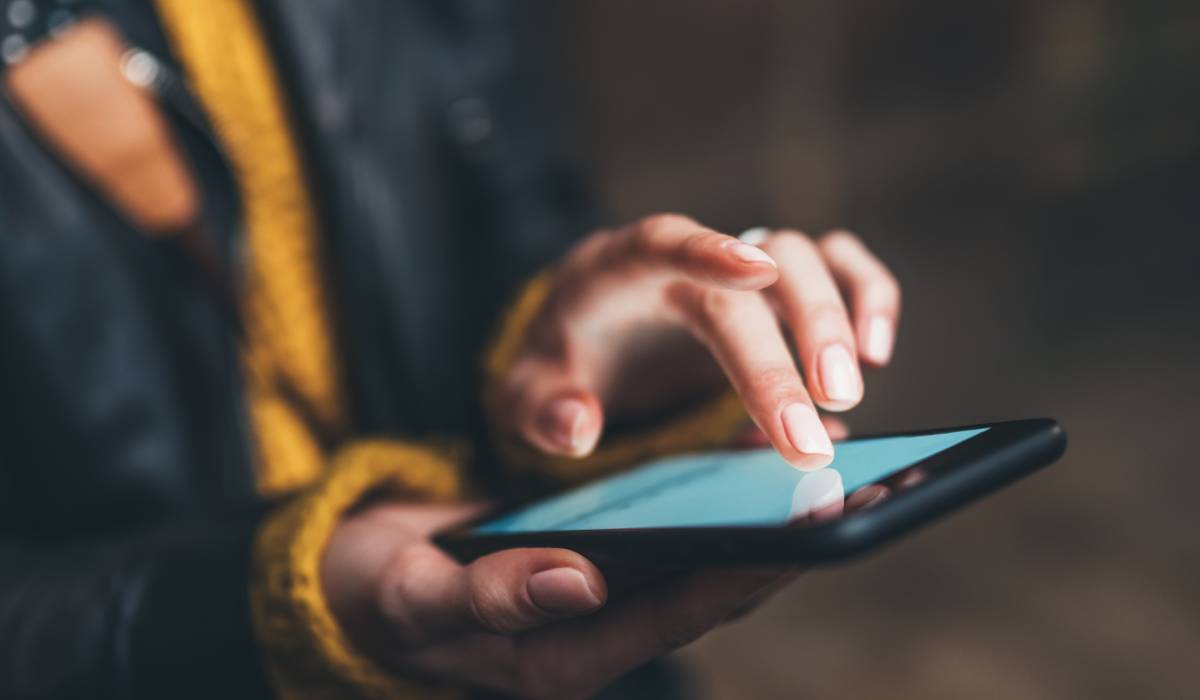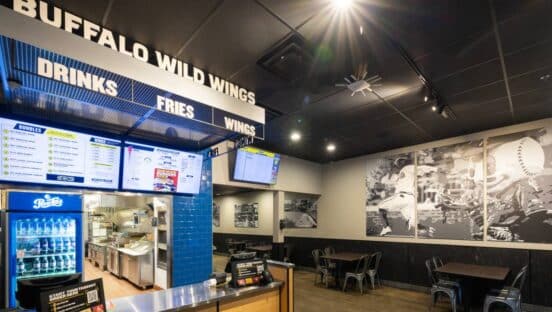The global COVID-19 pandemic left the economy in shambles and restaurants reeling. Experts have dubbed it a “black swan” event, or an unexpected occasion that makes a lasting impact in ways we’ll only know in hindsight. Indeed, the last few months have completely upended the foodservice industry and reset whatever momentum companies had built beforehand. Thousands of restaurants have already closed for good, and the rest will never be the same.
With so much uncertainty about COVID-19 remaining, it’s a Herculean task to theorize what restaurants will look like in the future. But we thought we ought to at least try. We asked the industry to weigh in on how the coronavirus will permanently alter the restaurant landscape, and what lessons have already been learned these last three months.
[float_image image=”https://www.qsrmagazine.com/wp-content/uploads/2020/04/RaisingCanes.jpg” width=”30″ link=”” caption=”” alt=”Raising Cane's Employee Makes Masks In Closed Store” align=”left” /]
Dean Loring
CEO
Burger Lounge
Simplicity will be the order of the day. Streamlining menus and operations will likely become an opportunity for many brands. Technology-driven brands will benefit from a possible slow return to pre-crisis guest behaviors.
Restaurant companies will learn to live with less G&A expense as a result of lessons learned from dramatic cutbacks during the crisis. These cutbacks will inevitably lead to leaner operations in favor of better cash flows. We will learn that we can live with fewer layers of G&A support to achieve the same results.
Touchscreen kiosk acceptance will likely be negatively impacted as preferred technologies that allow guests to order “touch-free” gain traction. Design elements like community tables will become a less attractive seating configuration in restaurant design. Unbridled growth will become a thing of the past as the availability of capital wanes. Eclectic restaurant start-ups will have a difficult time attracting investment.
[float_image image=”” width=”30″ link=”” caption=”” alt=”” align=”left” /]
Matthew Harding
SVP of Culinary & Menu Innovation
Piada Italian Street Food
There will be increased use of delivery as a percent of total sales. Guests will have a food-safety-first mentality, with expanded sanitization behaviors and expectations. Guests will be looking for less touch experience and look more to their phones to order, then go in, pick up, and sit down.
You can’t wait until a crisis to be at your best; you won’t survive. You have to have strong innovation and a creative culture. Being rigid and thinking we’ll just hit them harder with more of the same is a death knell. Businesses need to have intelligence in their organization.
[float_image image=”” width=”30″ link=”” caption=”” alt=”” align=”right” /]
Renae Scott
CMO
Ike’s Love & Sandwiches
It is difficult to imagine a return to life before coronavirus for good reason. Not only has our business been severely impacted, but so has the consumer psyche. Americans have rather quickly adapted to this new “normal,” and without a complete elimination of risk, they will be unlikely to completely return to pre-coronavirus habits. The industry will continue to see an emphasis on off premises and delivery that was highly accelerated due to the crisis.
Adaptability and communication are key in a crisis. A nimble organization allows for quick decisions from leadership that easily translate to the front line. In a matter of days, many of the sales and marketing plans we had in place were suddenly obsolete. Having a leadership group and creative team that was able to adapt and pivot has enabled us to retain a good portion of our sales.
Mike Morgan
VP of Operations
Pizza Guys
This pandemic has caused people to be more concerned with the food-safety process. This means that safety and security procedures and policies will become a long-term part of the marketing message for restaurants. This will become a focal point in the decision-making process for consumers moving forward. Having great food, good value, and strong service won’t be enough anymore. Consumers will want to know what brands are doing to keep their food safe, and how you are protecting your employees. Things like tamper-proof packaging and employees wearing the proper safety equipment will start being at the forefront of the customers’ minds when they are thinking about ordering food.
Zaid Ayoub
Founder & CEO
SAJJ Mediterranean
I think we will see a spike in lunchtime deliveries and takeout as more people work from home on a regular or daily basis. Industries that previously thought working from home was near-impossible have now had to accommodate to this change if they were deemed “non-essential,” so I imagine the lunch daypart will become a big opportunity for growth across the fast-casual segment.
[float_image image=”” width=”30″ link=”” caption=”” alt=”” align=”left” /]
Todd Graves
Founder & CEO
Raising Cane’s
You’ll see a real intense focus on crew members, on if they’re sick or not. We train and say, “If you’re not feeling well, then call your manager and just don’t come to work.” But we don’t check on it as much as we will in the future. Now there’s a survey when you come in to your shift: Do you feel well today? And I want that to stay. Because if someone comes in and is like, “No, I actually don’t feel very well,” then they don’t need to work today because we don’t want to pass that on to our customers or our crew members. I think that’s a good thing that I’ve learned through this. And adding a sneeze guard on the drive thru, I can’t believe I didn’t think of that before.
[float_image image=”” width=”30″ link=”” caption=”” alt=”” align=”right” /]
Emma Bice
Marketing Manager
Buona Companies
Expensive, experience-based, in-person dining will not survive this season. You’re seeing high-end, impossible-to-get-into restaurants offering affordable take-out options. Restaurants that usually cost hundreds of dollars per diner are shifting their focus. Not only are people going to be less likely to want to pack into an expensive restaurant with dozens of other diners, but they’re just not going to be able to afford a splurge like that anymore.
Having a simplified menu will be more important than ever, from an execution standpoint. We don’t know when this is going to be over. We could have numerous more lockdowns throughout the year. Restaurants need to be ready to adapt to that reality. Having a long menu of items that aren’t made for delivery and carryout will not bring in business. Creating a menu that you know will survive a drive home and still taste delicious will be key.
[float_image image=”” width=”30″ link=”” caption=”” alt=”” align=”right” /]
Ashley Morris
CEO
Capriotti’s Sandwich Shop
Brands with business models that were already challenged and just hanging on by a thread before the crisis will probably not reopen even after the pandemic passes. Investors, owners, and operators in those brands and businesses will have to think long and hard about reinvesting to re-open a business that was barely hanging on to begin with. Additionally, there will be a flood of newly available talent and prime real estate along with other resources available for those brands positioned to take advantage of it.
[float_image image=”” width=”30″ link=”” caption=”” alt=”” align=”left” /]
Akash Kapoor
Founder & CEO
Curry Up Now
I think we’ll see more full service and even Michelin-starred and James Beard Award–winning restaurants offer takeout menus on a permanent basis. Along the lines of takeout, to-go packaging will be upgraded to be safer and more sanitary, and I believe that restaurant meal kits are here to stay. A new grocery-restaurant concept has come from the COVID crisis, and I imagine those could be here to stay in the long run, too.
We have learned how critical it is to remain intimate with our brand, from the food and ingredients to the labor practices, payroll costs, costs of goods sold, and much more. We’ve gone “back to basics” and applied the founding principles of the Curry Up Now brand to our everyday operations. We’ve been in growth mode these last few years, which can dilute or draw attention away from those founding principles, but we saw the COVID crisis as an opportunity to make sure we’re capitalizing on our company’s basic mission and goals at all times.
Vendors Have Their Say
“Plants being turned into hamburgers, potato chips made with something other than potatoes, pasta made from fish—while these items may enjoy retail success and niche foodservice life, consumers will be returning to the things they trust, made the way they trust and understand.”
—
Dan O’Connell
CEO
Foodmix Marketing Communications
“Generation Z is critically important to the restaurant business for the next 20 years, both as employees and consumers, as the oldest of them are just emerging into the marketplace and starting careers. Having lived through 9/11, the Great Recession, and now the COVID-19 pandemic, they will be even more cocooned in their screens and suspect of large gatherings. Their influence and desires will cause everything and everyone to be lower touch.”
—
Jim Hargrove
Restaurant Business Consultant
Shamrock Foods Company
“Trends that will become more important: Digital integration (surprising how many brands did not have the ability for online ordering). Facial recognition during the transaction. Possibly more robotics in food handling. Customization and agility of menu changes. I love how some groups (many of the smaller ones) have bundled family meals. I feel menus will shift to accommodate the family meal. This will change the BOH in future restaurant design.”
—
Sean McGuinness
Business Director – Restaurants
Sargenti Architects
“Shared table items for dine-in will be a thing of the past. We expect to see a sharp rise in single-serve packets, complete elimination of shared open containers, and items packed for carry-out even for dine-in customers.”
—
Patricia Houston
Founder & COO
MMR Live Experience Design
“People will be more hesitant than ever to touch screens. Companies will need to implement conversational AI to keep ordering screens relevant to customers. Many people have been slow to adopt AI in all aspects of life/business. For the restaurant industry, we anticipate seeing customers not only being a lot more comfortable with digital employees, but also choosing digital interactions over in-person interactions.”
—
Rob Carpenter
Founder & CEO
Valyant AI
“Being fast and agile and able to react to changes in real time is critical. Having strong customer loyalty and staying in permanent communication with customers is key. The consumer segment mix of every restaurant is currently changing. Therefore, the current product portfolio and price points may not be ideal post-crisis.”
—
Philip W. Daus
Partner& US QSR Practice Head
Simon-Kucher & Partners
“For the franchise sector, CV19 will permanently alter how prospective owners think about brands. Franchise buyers will have new perspectives and heightened awareness of risk, contract language, fees, personal guarantees, and operational resilience. Candidates will want more explicit agreement language regarding franchisor support and may push for more shared risk models. It’s already a competitive market to recruit the best franchisees. After CV19, brands will have so much more to prove to win the best operators. Every franchise candidate you have for the next decade will ask how you supported franchisees during this event, and how fast franchisees bounced back.”
—
Alicia Miller
Principal
Franchise Performance Group
“Large numbers of guests will show up in the drive-thru lane, for curbside pickup, or for takeout
orders, and push the limits of current off-premises operations. Quick-service restaurant brands need solutions that make their off-premises operations more efficient to handle the increased demand, at scale, and without needing to hire more staff. ”
—
Raj Suri
Founder & CEO / Presto
“When the labor market was tight, we saw brands offering innovative and creative employee benefits to attract and retain staff, such as tuition assistance, four-day work weeks, or even cash bonuses. While many of those benefits will no doubt still be available after the pandemic, job seekers will now more than ever want to work for a brand that provides paid sick time and health benefits—including mental health care.”
—
Derek Williamson
CEO
HigherMe
“With our minds much more attuned to surfaces and their contact with our hands, touchless technology for things like off-premises interactions will become far more critical to operators and customers alike. Not only are they modern and convenient—they’re safer!”
—
Lee Leet
Founder & CEO
QSR Automations
“There’s going to be a big push back against the high commission fees charged by third-party delivery couriers after this. With the entire industry going online and wanting to offer delivery, the need for affordable options will force a change. Before, restaurants did not have an option—now you will see a plethora of restaurant-first alternatives emerge that offer bottom-line savings.”
—
Saleem S. Khatri
CEO
Lavu












